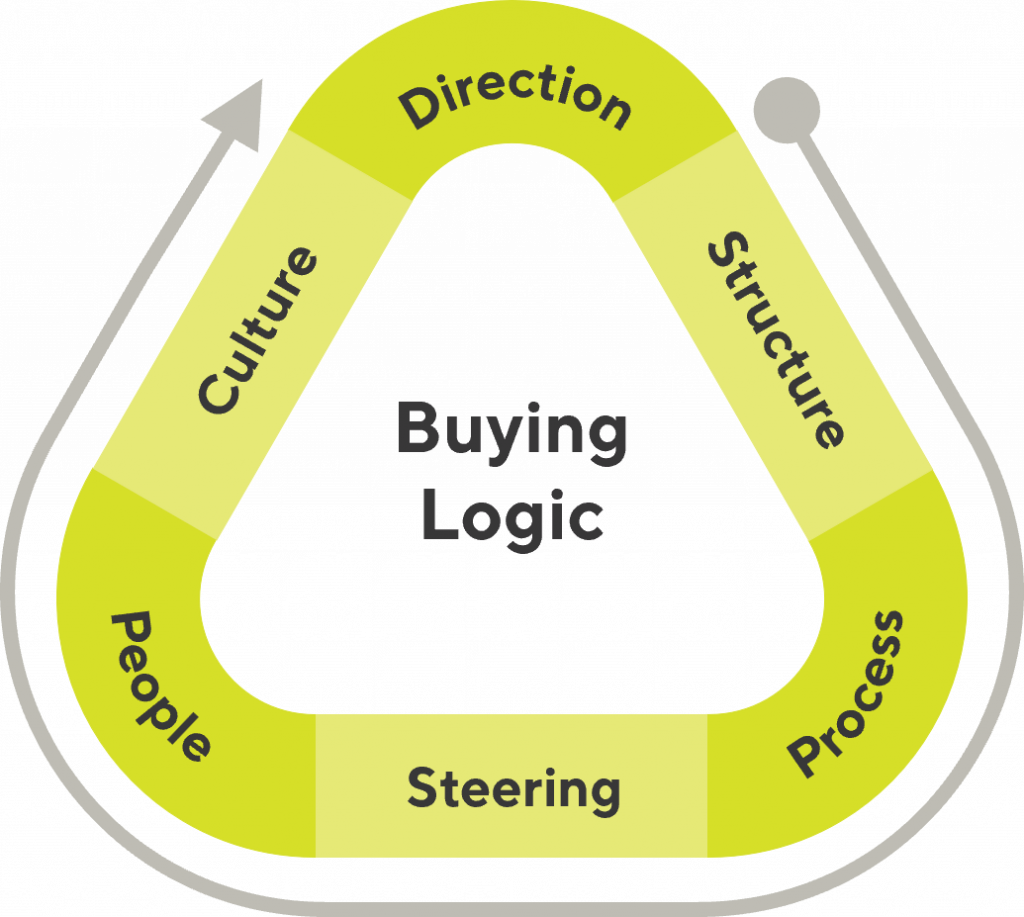More and more companies are investing in their sales organizations with the ambition to reach a level of Sales Excellence. But what does Sales Excellence really mean? And what does it take to get there? In this article, we’ll clarify the concept and outline eight basic disciplines companies must master if they are serious about increasing their growth and profitability.
For over 15 years, and with more than 40,000 hours of data collection and analysis, Mercuri International Research has been exploring the factors that explain why some companies are more profitable, have higher growth, and sell more than others. In our research, we have used both qualitative and quantitative methods to survey and study thousands of companies and salespeople to get more facts – in order to define ‘Sales Excellence’.

In short, the results show that selling is a multi-faceted battle. The successful companies outperform the low performers in every measurable way. So, there is no easy path to success. For this reason, we have compiled our findings into an overall Sales Excellence model that logically explains how the different disciplines are connected to each other. A model that can be used to discuss and identify strengths, weaknesses, and areas for improvement.
The eight disciplines that explain sales performance and that distinguish high performing companies from low performers form logical steps:
- Buying logic – facts about how customers buy. High-performing companies have a deep understanding of customers’ different buying logic. In practice, this means finding out what problem we are solving for the customer, what values different customers are willing to pay for, what risks and stakes they perceive and how they act through the buying process up to the purchase decision. This insight is crucial to achieve Sales Excellence. It underpins the sales logic and determines how a business should strive to be the best in the world. In our research, we call this transactional, traditional, complex, and distributed sales logic, all of which are based on different recipes for success. Read more: Revolutionize your B2B sales: Sales strategies based on 10 years of research.
- Direction – a clear path forward. The best companies in our research have a clear vision and objectives that everyone follows. These are used to modify strategies and prioritize initiatives for salespeople to work on. They have a clear segmentation model that explains where revenue should come from and which customers should be prioritized.
- Structure – organizing roles and functions. Structure is about how we use our resources in the best possible way, which has a major impact on the profitability of the company. In practice, this means appointing the right person with the right skills to the right role and ensuring that the sales organization has a high degree of collaboration with, for example, marketing, IT, delivery, and finance.
- Process – support sales for increased efficiency. Companies that send their salespeople out into the field to fend for themselves are significantly less successful than those companies that continuously support their salespeople with the right CRM, sales tools, methodologies, and data to make better-informed decisions. They also have well thought-out processes for finding business, building relationships with customers, and mapping and approaching decision-makers.
- Management – leading, coaching, and rewarding salespeople. High-performing companies have leaders who continuously coach, provide feedback, and motivate their employees to improve performance. Furthermore, they have KPIs, metrics and incentives that encourage the right behaviors and actions for the business they are in. This discipline has a crucial impact on growth, employee satisfaction, and internal collaboration.
- Individual – attracting, developing, and retaining talent. Skills are the key to success. The best companies in our surveys are significantly better at attracting, developing, and retaining the right skills. They invest more in the individual and ensure that all employees have the opportunity to develop and reach their full potential.
- Sales culture – focus on the business and the customer. The most successful companies put sales and customers first. Salespeople are highly regarded in the company; sales successes are highlighted and ongoing sales are reported to everyone in the company. Other employees in the organization are also aware of how they can help increase sales and ensure customer satisfaction.
- Change management – creating a learning organization. We live in a rapidly changing world. The best companies know this, which is why they encourage development, initiative, and learning. They continuously collect data on trends, the market and their customers and experiment with different initiatives to see what they should develop and improve. In short, they are more development-oriented than the low performers.
All these disciplines thus contribute to Sales Excellence – the ability to maximize a company’s sales, growth, and profitability. However, it should be stressed that the most important discipline in this context is purchase logic. Without understanding how customers buy, and what business you do, we cannot define Sales Excellence. The more specific success factors for each discipline differ depending on the complexity of the business. For more on buying logic, see Revolutionize your B2B sales: Sales strategies based on 10 years of research.


